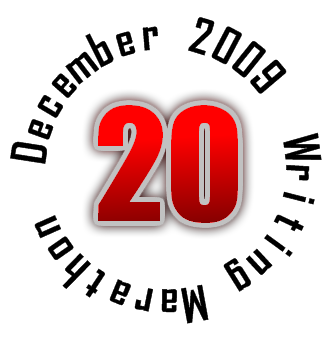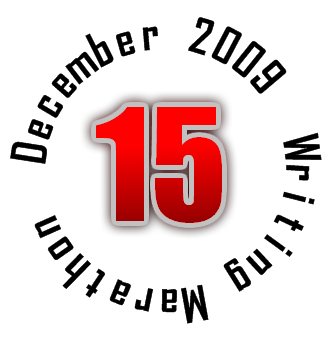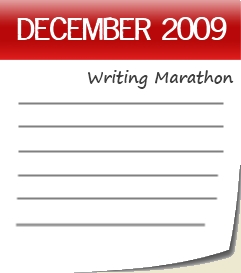The following message is dedicated to any writer who has ever felt discouraged and depressed.
Hey, you! Listen up. Yeah, you. Why the long face? Oh, I get it. You’re depressed because either:
a) you don’t have any readers
b) your book isn’t selling
c) you haven’t been published
d) your peers are surpassing you
e) you have no idea how you’re going to make ends meet
f) you’re frustrated as hell with the publishing industry
g) your work keeps getting rejected
h) your contracts aren’t coming through
Yeah, me too. I’ve been there. What? Your situation is more depressing than that? No kidding! So it’s:
a) you’ve been plagiarized
b) your work has been pirated
c) your frustrated as hell with e-books
d) you don’t want to sell books, you just want to write
e) you want to pull your hair out because contracts are too effing frustrating
f) you’re not getting paid for what you’re worth
g) you hear the words “online marketing” and you want to vomit
h) none of the above but something as equally annoying
Oh, I’m right there with you. I’ve been in all of those places, too.
No, I may not have the same experiences as you do. I’m not any best-sellers’ list that you’ve heard of and I haven’t been published through a traditional publisher yet. Though, I have several publications under my belt and I have collaborated on dozens of projects, some of which I had to either remain anonymous on or will never see the light of day. Regardless of where you are in your career, we do share something in coming. They’re called feelings. I’ve gone through a lot and will probably go through more as I continue writing. Quite frankly, almost every author does.
What’s that? This doesn’t apply to you? Well, then you’re damn lucky. Most — if not all — of the authors I’ve ever talked to go through highs and lows. If you ever wonder why authors toot their own horn, it’s often a misguided attempt to either consciously or unconsciously fend off that sinking feeling that their work doesn’t matter.
I say, “Screw that.” Your work does matter. Does it suck that you have fewer readers than the number of calories in a McDonald’s Big Mac? Is it terrible that your book sold fewer copies than the distribution amount of your local free newspaper?
Let me ask you a different question: Did you like what you wrote? No, really. Do you like yourself “as” an author? Did you do the best damn job you could ever do and you’re happy with the results?
Then why should you care about anyone else is doing? You cannot control whether or not people are going to like your book after it is published. You can only pour your efforts into the work before you submit it, and even then one editor’s bane is another editor’s treasure.
Regardless of how happy you are with your own work, it’s your relationship with the words on the page that matters the most. If you’re happy with your writing, why does it matter what anyone else thinks? Keep in mind, I am talking about reality here. Sometimes stories do need a little help from an editor or a critique group. That’s what they’re there for.
Now, I know many of you need to eat and you can’t live off of unpaid manuscripts. I’m right there with you. That’s why I have a day job (and a very good one at that). That’s my choice. What choices have you made? Can you live with those decisions?
Well, if you can’t — then make a different choice. If you can, suck it up and get back to that computer! Your next story will not get written if you keep whining about how bad things are. Channel that energy into your characters and turn that frustration into a work of art.
After all, this is why we are writers. We live to tell a story. The business side of it adds a layer of confusion, frustration, joy and (hopefully) a monetary reward for telling those stories, but in the long run that’s neither here nor there. We are storytellers.
So I’m asking you to suck it up. Put aside your worries and tell your damn story. After you’re done with that one — tell another one!
I know it sucks and I know how heartbreaking the business side can be. But don’t give up. Just don’t. Forget about how many readers you have now and think about the disappointed readers you might have some day. In this business, anything can happen. You just keep on telling those stories and worry about the rest later.
If you read this post and felt inspired to write, I ask that you either leave a comment or write your own blog post to help other writers who are discouraged and need a little motivation. We’ve all been there. You never know, one day we might need a little positive vibeage, too.

 I was fortunate to attend a presentation given by author
I was fortunate to attend a presentation given by author  We’re two-thirds of the way through, and from what many of you have been sharing, this has been a “busy-insane-nutso” month for many of us. Still, regardless of whether or not you’ve written or revised one chapter or several, there’s something we can all learn from being this busy. Sometimes, in order to write we need to shut off our brains and just put our fingers on the keyboard. (Like Yoda says, “Do or do not, there is no try.”)
We’re two-thirds of the way through, and from what many of you have been sharing, this has been a “busy-insane-nutso” month for many of us. Still, regardless of whether or not you’ve written or revised one chapter or several, there’s something we can all learn from being this busy. Sometimes, in order to write we need to shut off our brains and just put our fingers on the keyboard. (Like Yoda says, “Do or do not, there is no try.”)  If you think about it, writers, artists and musicians have everything in the world working against us — because conventional wisdom tells us we’re not “supposed” to make money doing this. We’re supposed to suffer, because that’s part and parcel of being an artist.
If you think about it, writers, artists and musicians have everything in the world working against us — because conventional wisdom tells us we’re not “supposed” to make money doing this. We’re supposed to suffer, because that’s part and parcel of being an artist.  In my previous post entitled
In my previous post entitled